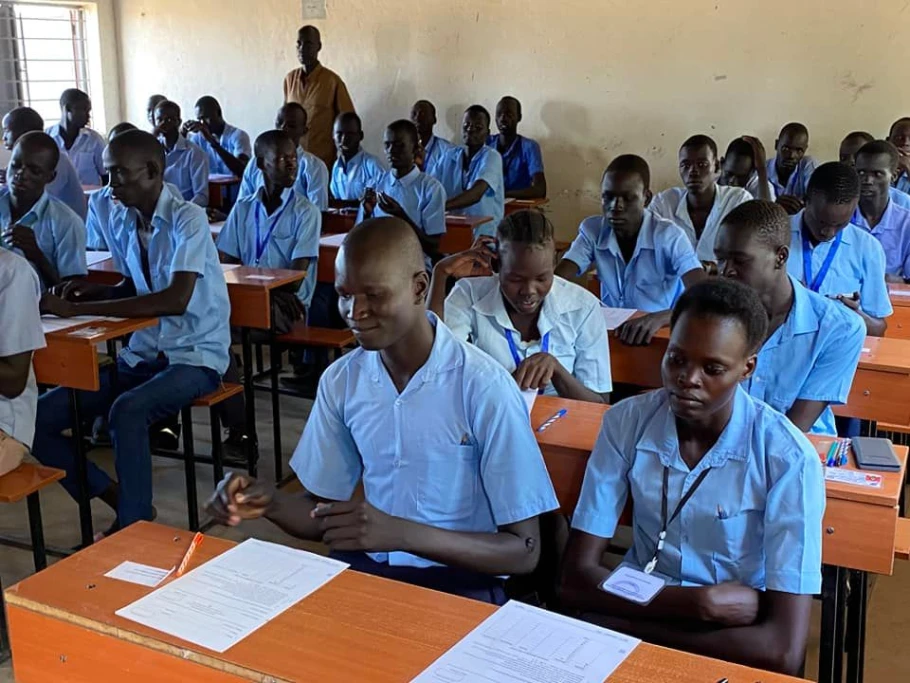
The Warrap state education minister asks parents to enroll more girls in schools and fight for gender equality. The call came after only 530 girls from 2100 students sat for the national exams in Warrap and Abyei areas this year.
The education minister in Warrap state Hon. Kuot Deng Kuot says people’s negative behaviors toward female education and lack of community awareness are the lead factors that contributed much to the low enrollment of female students in schools.
He stated that females are not getting an education because of long-held cultural traditions regarding marriage in exchange for a dowry. Parents married off their daughters earlier if they were in poverty.
Kuot Deng said that the country’s economic crisis had forced low-income families to favor boys when investing in education.
Education official says the gap in girls’ education is attributed to the unconcern and resistance of parents, unfavorable attitudes toward coeducation, parents’ poverty, shortages of schools, and poor-quality instruction.
“The reason is that our area doesn’t value girl child education so much. Also, some factors pin them down not to join education like early marriage, forced marriage, and others. However, some families don’t like taking their children to school because they want their daughters used for marriage.”
Some parents say the government needs to organize workshops to alert parents on the importance of the girl child education. Malak Kuol, one of the community elders in Turalei, says parents need awareness to boost the enrolment of girls
“The community typically believes that a girl will be taken to school by her husband if they want to learn and benefit their family. But for the boy, all he will be earning will come to his parents since he will stay with the parents, unlike the girl who will go to her home.”
Another community member, Yai Makol, who works as a trader, said the economic crisis had forced parents to stop sending some children to school, especially girls.
He urges parents to also consider girls’ education as a vital tool for ending poverty in society.
“My daughters are now feeding me, and I didn’t know previously until my brother informed me. So, all that is needed is training people on the benefits of educating a girl.” Makol said.
The General Education Act, 2012 of the Republic of South Sudan works toward education that is gender-equal and free from discrimination or instruction.
The Education Act of South Sudan promotes gender equality throughout all school levels and encourages the protection of children from abuse, violation, and exploitation.